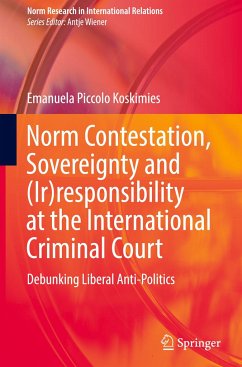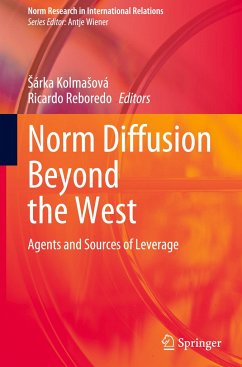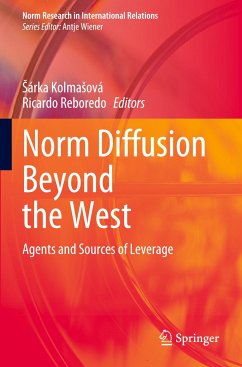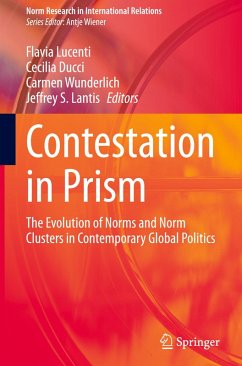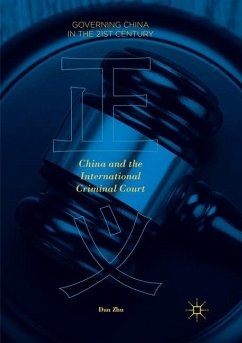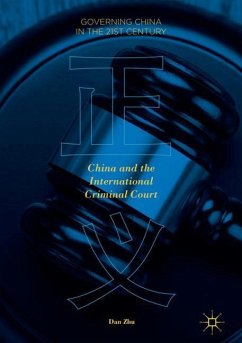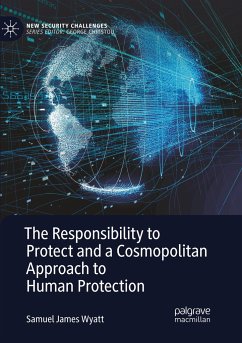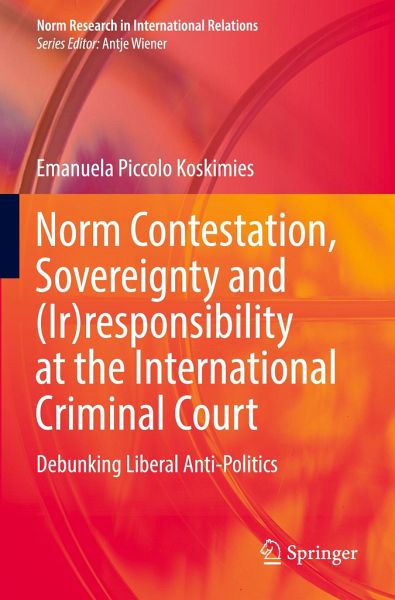
Norm Contestation, Sovereignty and (Ir)responsibility at the International Criminal Court
Debunking Liberal Anti-Politics
Versandkostenfrei!
Versandfertig in 6-10 Tagen
83,99 €
inkl. MwSt.
Weitere Ausgaben:

PAYBACK Punkte
42 °P sammeln!
Grappling specifically with the norm of sovereignty as responsibility, the book seeks to advance a critical constructivist understanding of norm development in international society, as opposed to the conventional - or liberal - constructivist (mis)understanding that still dominates the debate. Against this backdrop, the book delves into the institutionalization of sovereignty as responsibility within the lived practice of the International Criminal Court (ICC). More to the point, the proposed exploration intends to revive questions about the power-laden nature of the normative fabric of inter...
Grappling specifically with the norm of sovereignty as responsibility, the book seeks to advance a critical constructivist understanding of norm development in international society, as opposed to the conventional - or liberal - constructivist (mis)understanding that still dominates the debate. Against this backdrop, the book delves into the institutionalization of sovereignty as responsibility within the lived practice of the International Criminal Court (ICC). More to the point, the proposed exploration intends to revive questions about the power-laden nature of the normative fabric of international society, its dis-symmetries, and its outright hierarchies, in order to devise an original framework to operationalize research on how - institutional - practice impinges on norm development. To this end, the book resorts to an original creole vocabulary, which combines the contributions of post-positivist constructivist scholars with the legacy of key post-modernist thinkers such as Michel Foucault and Jacques Derrida, as well as critical approaches to International (Criminal) Law and Post-Colonial Studies. The book will appeal to scholars of international relations and international law, in addition to critical scholars more broadly, as well as to practitioners in the fields of human rights and international justice interested in normative theory and the implementation and contestation of international social norms.



